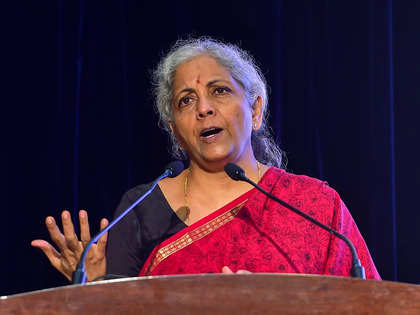India has amplified the need to refocus global attention on emerging and developing economies as these will be the drivers of growth in the coming years. Finance Minister Nirmala Sitharaman, who is in Morocco to attend the fourth and the last G20 Finance Ministers and Central Bank Governors (FMCBG) meeting under India’s Presidency, underlined the urgent need to bring in reforms at the multilateral agencies to boost growth and development in the new emerging era.
Sitharaman noted that the multilateral agencies, which came into being after the Second World War “have stood for nearly 70-80 years and have been dominated by the Global North. “But, gradually now, [they are] showing signs of fatigue. And, because of that many of the objectives which were to be served, other than restoring Europe after the War, are still waiting to be served,” the Finance Minister said, adding that the emerging markets and Global South will be the future drivers of global growth.
“Most of the post-Second World War institutions, global institutions, were fashioned after most European powers or the United States of America with very little, if I may say, very little contribution from countries which have just come out of colonial rule.” So obviously, Africa and many Asian countries were not heard while setting up multilateral institutions, she said while delivering a keynote address on “Reviving Growth with Inclusivity”.
In the post Covid phase, the world is grappling with multiple challenges which include food and energy shortages amid rising prices, debt distress for countries and climate issues. These have impacted the Global South the most.
The National Council of Applied Economic Research (NCAER) in a study said that despite owing half their external debt to the multilateral development banks (MDBs), the lower income countries are deemed to be in debt distress. “This raises questions about the accuracy of their debt sustainability assessments conducted by the MDBs,” it said.
Last month, World Bank President Ajay Banga said that the multilateral agency has started working on its reform agenda. Banga, at a press conference, during the G20 summit in New Delhi said that while the bank will continue to focus on poverty eradication, other key issues relating to climate change and debt management in the wake of the Covid pandemic need to be taken up as well.
Meanwhile, Sitharaman also called for private sector participation for meeting the Sustainable Development Goals (SDGs) by 2030.
“India under its Presidency has called upon all G20 members to collectively resolve to fully and effectively implement the 2030 Agenda and accelerate progress toward the SDGs, in a timely manner,” Sitharaman said.
India, under its one year G20 presidency, has positioned itself as the voice of the Global South. Last year while unveiling the 2023 G20 summit logo and theme, Prime Minister Narendra Modi said that the effort should be to ensure there is only one world by removing barriers including “First World” or “Third World”. African Union was given membership to G20 last month under Indian’s presidency. Rich in natural resources and minerals, Africa’s role is steadily increasing in shaping global economic contours in the new emerging world order.




















